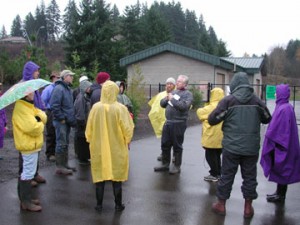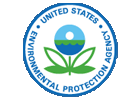The Southwest Regional Office of the Washington State Department of Ecology (DOE) submitted a list of six projects to the Olympia office for consideration of funding a Total Maximum Daily Load (TMDL) study. Burnt Bridge Creek was the ranked second among this list of six projects, but it was not chosen as part of the statewide priority list for this funding cycle (the cycle lasts for five years). Only 9 projects were funded statewide from four regional offices. [Read More...]
-
Write Letters to Help Clean Up Burnt Bridge Creek – June 16, 2004
-
Cleaning up Vancouver Lake – June 15, 2004
VANCOUVER LAKE TASK FORCE MEETINGS
To: Iloba Odum, Director, SW Regional Office, Deprtment of Ecology
From: Dvija Michael Bertish, Chairman, Rosemere Neighborhood AssociationJune 15, 2004
Iloba,
Attached below is an email that I sent to Betty Sue Morris last December asking to be part of the Vancouver Lake Task Force. I did not receive a response to this request, and suffice it to say that I was disappointed at what I read in the Columbian today as well as the Task Force’s media release. Everyone knows that RNA has been extremely active in this situation and that we want to participate in this process. [Read More...]
-
Sewage spill at Frenchman’s Bar Park – April 15, 2004
The RNA received this response to our complaint from the Washington State Department of Ecology in Olympia on April 20, 2004.
Thank-you for voicing your concerns in this matter. Ecology was notified of the incident on the day that it occurred. This Department is actively investigating the situation at this time. The report will be available to the public upon the completion of the investigation. Please feel free to inquire after June 1st about the status of this investigation. Please refer to ERTS number 540239 when making inquiries. [Read More...]
-
RNA opposes City’s SEPA application on the proposed Burnt Bridge Creek Greenway project – February 5, 2004
To: Jon Wagner, Development Review Services
From: Rosemere Neighborhood Association
Re: Application: Burnt Bridge Creek Greenway PRJ2003-01122 which includes the following:
ARC2003-00025, CON2003-00087, ENG2003-00164, FLP2003-00003, GEO2003-00002, GRD2003-00088, PSR2003-00044, SEP2003-00058, SHL2003-00005, TRE2003-00195 and WET2003-00006
These comments on the project have been sent prior to the cutoff date of Monday, February 9, 2004, and are to be incorporated into the staff report.
This correspondence serves as written notice that the officers and board of the Rosemere Neighborhood Association oppose this proposed project, and as outlined herein, believe that the project will create probable significant adverse environmental impacts. [Read More...]
-
Rosemere Neighborhood Association Water Walk – December 7, 2003


RNA Board Members, Rosemere residents, and concerned environmental activists gather in the rain to hear Thom McConathy explain the terrain and our community's failing stormwater and groundwater facilities.
On December 7, 2003, the RNA Board, accompanied by environmental activists, toured the Burnt Bridge Creek Basin and Vancouver Lake to learn more about the contamination of our waterways. This tour was lead by Thom McConathy, a very active community steward who has passionately fought to save our ground and surface waterbodies for more than 20 years. Mr. McConathy is among our community’s most knowledgeable experts on the subjects of water quality and contamination, and he has been instrumental in helping the RNA address the contamination of Burnt Bridge Creek and Vancouver Lake, as discussed in the RNA’s federal Title 6 complaint.
-
THE FLUSHING CHANNEL WILL NOT WORK FOR VANCOUVER LAKE
The Rosemere Neighborhood Association offers this information to substantiate the objection to the proposed re-dredging of the flushing channel connected to Vancouver Lake. This project is being proposed by the Port of Vancouver as an attempt to rid Vancouver Lake of serious contamination. [Read More...]
-
Approaches to Water Quality Protection
Protection of our water supply and aquatic habitat is vital to the viability of our economy, as well as the overall sustainability of human and wildlife. Increased population and development threaten our water resources, and management practices must be put into place to protect these resources before they are contaminated beyond repair. [Read More...]










![Washington State Water Quality Assessment [303(d)] Washington State Department of Ecology](http://www.rosemerena.org/home/wp-content/uploads/2009/03/ecy_logo.gif)

